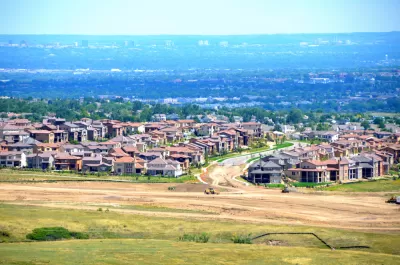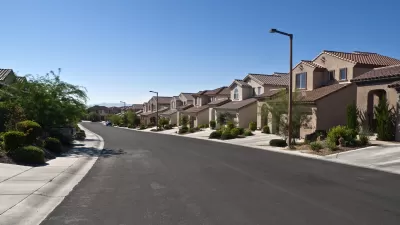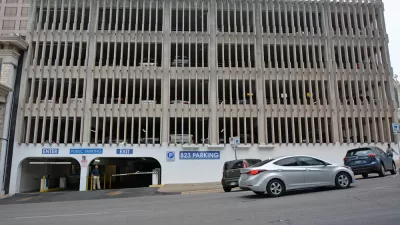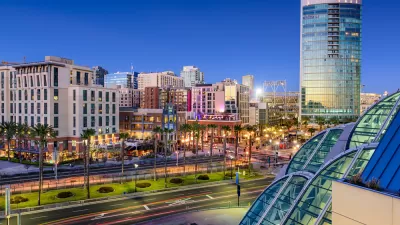The United States will have to make major changes to long-standing land use and transportation paradigms to prevent the worst outcomes of climate change. How to make those changes was the subject of a recent podcast.

The Sustainable City Podcast recently focused on the connections between land use and transportation and how each affects the fight to reduce carbon emissions.
Hosts William Shutkin and Andy Bush spoke with Rushad Nanavatty, managing director and lead of the Rocky Mountain Institute’s Urban Transformation program, and Ben Holland, senior associate and policy liaison at RMI. The entire hour-plus podcast is transcribed at the link below, including discussion of road pricing, electric car technology, and the need for zoning reform, among other topics.. A few highlights:
Nanavatty: "…we’re not going to solve the climate crisis with a silver bullet. It’s a problem that requires the use of silver buckshot. And there are certainly some pieces of buckshot that are bigger and more important than others, but we are going to need to do several things. We’re going to need to stop the bleeding, stop sort of perpetuating these incredibly destructive patterns of urban development by changing our land use practices and our zoning.”
Holland: “So the California Air Resources Board recently put out a goal of reducing VMT by 15 percent. You’re starting to see a number of other climate action plans, including that. Because we’ve got about a little less than two million EVs on the road today. We need 70 million by 2030. I think it’s reasonable to assume that we might fall short of that, excluding any major policies that could shift behavior. So that VMT reduction piece becomes even more important.”
For additional background, see previous Planetizen coverage of the repeated calls by the United Nations for the United States to reverse its course automobile dependency and sprawl.
FULL STORY: Achieving Our Climate Goals: The Land Use-Transportation Nexus

Montreal Mall to Become 6,000 Housing Units
Place Versailles will be transformed into a mixed-use complex over the next 25 years.

Planetizen Federal Action Tracker
A weekly monitor of how Trump’s orders and actions are impacting planners and planning in America.

DARTSpace Platform Streamlines Dallas TOD Application Process
The Dallas transit agency hopes a shorter permitting timeline will boost transit-oriented development around rail stations.

Interactive Map Reveals America's “Shade Deserts”
Launched by UCLA and American Forests to combat heat-related deaths, the tool maps the shade infrastructure for over 360 U.S. cities.

Bicycles and Books — In Sacramento, Libraries Now Offer Both
Adult library card holders can check out e-bikes and e-trikes for up to one week.

Colorado Landfills Emit as Much Pollution as 1M Cars
Landfills are the third-largest source of methane pollution in Colorado, after agriculture and fossil fuel extraction.
Urban Design for Planners 1: Software Tools
This six-course series explores essential urban design concepts using open source software and equips planners with the tools they need to participate fully in the urban design process.
Planning for Universal Design
Learn the tools for implementing Universal Design in planning regulations.
City of Mt Shasta
City of Camden Redevelopment Agency
City of Astoria
Transportation Research & Education Center (TREC) at Portland State University
US High Speed Rail Association
City of Camden Redevelopment Agency
Municipality of Princeton (NJ)





























